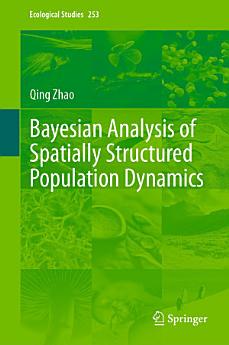Om den här e-boken
The book introduces a series of state-of-art Bayesian models that can be used to understand and predict spatially structured population dynamics in our changing world. Several chapters are devoted to introducing models that utilize detection/non-detection data, count data, combined count and capture-recapture data, and spatial capture-recapture data, respectively. The book provides R code of Metropolis-Hastings algorithms that allow efficient computing of these complex models. The book is aimed at graduate students and researchers who are interested in using and further developing these models.
Om författaren
Qing Zhao is a quantitative ecologist with strong interests in developing and applying statistical models to understand and predict how animal populations, communities and movement respond to our changing world. He has worked closely with conservation agencies for more than 10 years to broaden the impacts of his research on biodiversity conservation at local, regional, and international scales.
Betygsätt e-boken
Berätta vad du tycker.
Läsinformation
Smartphones och surfplattor
Installera appen Google Play Böcker för Android och iPad/iPhone. Appen synkroniseras automatiskt med ditt konto så att du kan läsa online eller offline var du än befinner dig.
Laptops och stationära datorer
Du kan lyssna på ljudböcker som du har köpt på Google Play via webbläsaren på datorn.
Läsplattor och andra enheter
Om du vill läsa boken på enheter med e-bläck, till exempel Kobo-läsplattor, måste du ladda ned en fil och överföra den till enheten. Följ anvisningarna i hjälpcentret om du vill överföra filerna till en kompatibel läsplatta.








